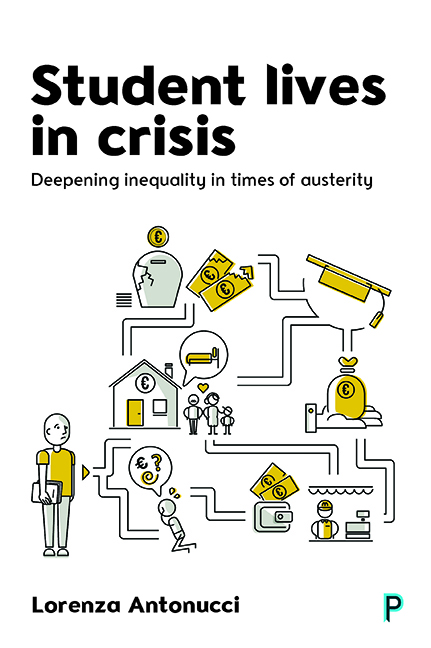Book contents
- Frontmatter
- Dedication
- Contents
- List of tables and figures
- List of acronyms
- Note on author
- Preface: A post-Brexit preface
- Acknowledgements
- Introduction: Young people’s lives at university in crisis
- Part 1 University for all? How higher education shapes inequality among young people
- Part 2 Exploring the inequality of university lives in England, Italy and Sweden
- Part 3 The ‘eternal transition’: young adults and semi-dependence in university
- Conclusion: Addressing growing inequality among young people in university
- Notes
- Annex
- Index
one - Social consequences of mass access in Europe
Published online by Cambridge University Press: 05 April 2022
- Frontmatter
- Dedication
- Contents
- List of tables and figures
- List of acronyms
- Note on author
- Preface: A post-Brexit preface
- Acknowledgements
- Introduction: Young people’s lives at university in crisis
- Part 1 University for all? How higher education shapes inequality among young people
- Part 2 Exploring the inequality of university lives in England, Italy and Sweden
- Part 3 The ‘eternal transition’: young adults and semi-dependence in university
- Conclusion: Addressing growing inequality among young people in university
- Notes
- Annex
- Index
Summary
As going to university becomes a ‘normalised’ experience for an increasing number of young Europeans, the important role that universities have for the current generation of young Europeans must be explored. Martin Trow1 had already foreseen this revolution when he wrote how the historical passage from an elitist to a mass HE, characterised by an increase of up to 50% in the participation rate of young people going to university, was to be overthrown by the even more important passage to a universal system of HE with an even higher rate than 50%. By the 2000s this historical passage had become reality in most EU countries, where more than 50% of young people aged 18 to 29 entered HE.2 When the participation rate of young people in HE goes beyond the symbolic 50%, as Trow writes, HE not only becomes an obligation for middle and upper classes, but also an increasingly viable experience for young people from lower socioeconomic backgrounds. However, despite the narrative of the expansion of HE as a democratising force and a symbol of the expansion of equal opportunities, HE has also become a driver for enhancing existing inequalities.
A crucial step in addressing how inequalities are reproduced through HE is to disentangle the implicit paradoxes behind the policies of mass expansion. On the one side, this mass expansion is based on a general idea of an educational path previously reserved for the elite. On the other, this access is still limited by many structural constraints that young people face while in university. A major limitation discussed in this chapter is that the democratisation agenda has not been accompanied by a change in the way of looking at universities as places that need to ‘reward the successful ones’. In this competition that rewards the best students, the emphasis of policies is on access (increasing the number of young people in university) and on career destinations (the jobs that young people will get after finishing their degrees). What is missing is attention to what happens in between, namely, while young people are in university; this would shift attention towards the inequality of young people's experiences .
Paradox of higher education policies: democratisation through inequality
The historical passage that made universities change from being ‘places for the elite’ to central places for democratisation and social inclusion in modern society has left profound contradictions that are embedded in HE policies.
- Type
- Chapter
- Information
- Student Lives in CrisisDeepening Inequality in Times of Austerity, pp. 17 - 32Publisher: Bristol University PressPrint publication year: 2016



